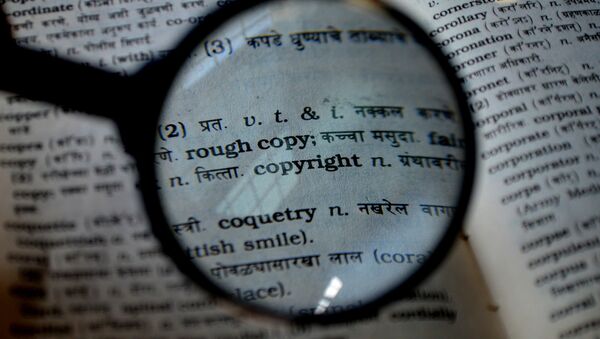Sputnik: Is this a victory or are you upset by this law?
Eleonora Rosati: It is a bit early to speak of a victory or a complete defeat, because it’s certainly a positive step towards the adoption of a directive.
Sputnik: I can imagine that as a lawyer, this might give you more business if this was passed; there’ll be lots of reasons to sue now. Should this be something that should make the average user worry about opening themselves up to legal action for doing things that we’re very used to doing, like hyperlinks and so forth?
Eleonora Rosati: This new legislation is likely to change the current framework, but I would think that those that among users, those who will be more exposed to the risk of litigation and will need to spend more money on compliance and be in line with new obligations would be platforms.
I don’t just mean YouTube and Facebook, that are big players, but also smaller platforms; startups will need to spend money in order to be in line with what the law requires. Then, of course, those which provide aggregation services of news content; usually these might be big businesses like Google News, but also smaller enterprises that provide news content.
Sputnik: I can imagine that the big businesses for the most part will have their already-hired legal team make changes and they will license certain things; what are your thoughts on what that would cost and how long it would take to comply?
Eleonora Rosati: If the directive is adopted, that would be before May 2019. That is before the European election that is a cut-off date, I would say. And after that there will be a usual two-year implementation period – that is a period during which the individual member states need to adopt legislation in order to align this with what the EU law requires.
After that, businesses would be subject to new obligations. So, all in all, there will be a period of two or three years for businesses to understand and take the appropriate steps to comply with the new law.
Sputnik: How many things that you and I have done today would now be open to litigation if this law kicks in?
Eleonora Rosati: There are two types of costs that one has to think about. The first type of cost is the money that businesses will actually commit to spend in order to bring themselves in line with the law.
So this is actual money that will decide to invest because the team can decide if their business activity is worth it. There is another cost that is probably not that visible and we might not know about it. It is the cost of those who decide not to do things that after assessing there is complete liability how much it will cost them to bring themselves in line with the law.
They decide not to provide the service and to shut down or to go elsewhere. There might be different types of cost that are behind all this. Certainly, the new law provides for making some exemptions, for instance, platforms like Wikipedia will not be caught by article 13. The same would be true for CloudStore services like DropBox etc. But certainly there’re rumors or consistent uncertainty as to what one needs to be doing.
Views and opinions expressed in this article are those of Dr. Eleonora Rosati and do not necessarily reflect those of Sputnik.





